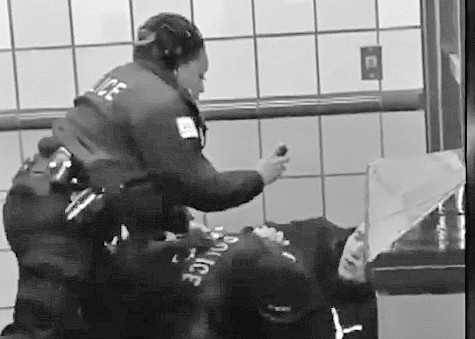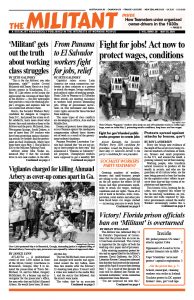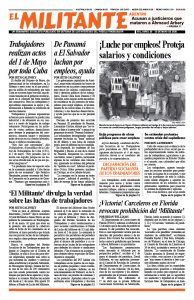
CHICAGO — The videos were shocking enough to briefly break through the coronavirus media barrage and make national headlines. Two Chicago cops used a Taser, pepper-sprayed and then shot an unarmed man in a downtown subway station during rush hour Feb. 28. His “crime?” Walking between cars on a moving train.
Ariel Roman, a 33-year-old short-order cook who is Latino, was suffering a panic attack, his attorneys say. Surveillance videos show police officers Melvina Bogard and Bernard Butler, both of whom are Black, pursuing Roman as he gets off the train, grabbing him as he tries to walk away, and tackling him to the ground. A bystander recorded much of the struggle that ensued with his cellphone.
Trying to handcuff Roman, both officers stun him with their Tasers. Butler can be heard at least twice telling Bogard to “shoot him.” At one point Roman stands up, apparently wiping pepper spray from his eyes, and Bogard shoots him in the stomach at close range. Roman then breaks free and runs up a nearby escalator. The cops follow, and a second shot rings out. That bullet lodged in his buttocks. Amazingly he wasn’t killed, but suffered major injuries.
The video rapidly went viral when it was posted on social media. Two months later, the Civilian Office of Police Accountability released additional footage from surveillance and police body cameras, drawing national attention to the case.
Roman is suing the City of Chicago and the two cops. Bogard and Butler were pulled off the street and put on paid administrative duty. But no criminal charges have been filed against them so far.
Role of cops in capitalist society
On Feb. 29, the day after the shooting, a previously planned rally against police brutality was moved to the entrance of the subway station where Roman was shot. Many of the protesters called for the city to form a new Civilian Police Accountability Council, supposedly to rein in the cops.
“There’s no reform that’s going to change the fundamental character of the police in capitalist society, which is to ‘serve and protect’ the ruling class at the expense of working people,” I said when I spoke there as the Socialist Workers Party candidate for U.S. Senate. “We need to mobilize working people to demand the prosecution of the cops who carried out this outrageous attack.”
In the weeks since then, statewide “stay at home” lockdown orders have put obstacles in the way of more protests. What the cops visited on Roman is daily fare for working people in the largely African American and Latino neighborhoods on the South and West Sides, who face neighborhood checkpoints and harassment in the name of enforcing the lockdown.
At the same time, the cops make no serious attempt to stop the ongoing gang violence that costs hundreds of lives every year in Chicago. In fact, many cops profit from involvement with gangs and drugs.
The night of May 2 cops broke up several house parties where young people had gathered on the South and West Sides. At the same time at least 21 people were shot across the city that night, two fatally. No arrests have been made.
This is business as usual here. The cops’ attitude is “let them kill each other.”
“Chicago Police have failed to make an arrest in 85 percent of the violent crimes committed with firearms that have taken place in the city since 2001,” The Trace paper and TV station WTTW reported last November. During the same period “police data shows 610,000 arrests for charges of possessing or purchasing marijuana or other illegal drugs.”
“They’ll get a person for marijuana before they’ll get a person for murder,” Angela McCray told The Trace. Two of her sons were killed by gunfire, in 2015 and 2017. She said both times the cops wouldn’t even come to take a statement from them as they lay injured in the hospital.
No “reform” under capitalism will change this situation. Cop brutality is an intrinsic part of capitalist rule. Its role — as part of the rulers’ criminal “justice” system — is to intimidate and punish workers. Their victims are disproportionately Black and Latino.
What we must do today is build a fighting labor movement with a revolutionary program — helping lead fights for jobs, for amnesty for undocumented immigrants, and against police brutality. This can open the road to unite working people in our millions to fight to take political power from the capitalist class.
As was the experience in both the rise of industrial unions in the 1930s and in the fight to overthrow Jim Crow segregation in the 1950s and ’60s, real working-class struggles draw in broader layers, including those who today carry out anti-social activity, and involve them in forging solidarity with other workers.
It is only through growing struggles against the brutalities of capitalism that working people can begin to overcome the distortions of human potential and character that exist today.

